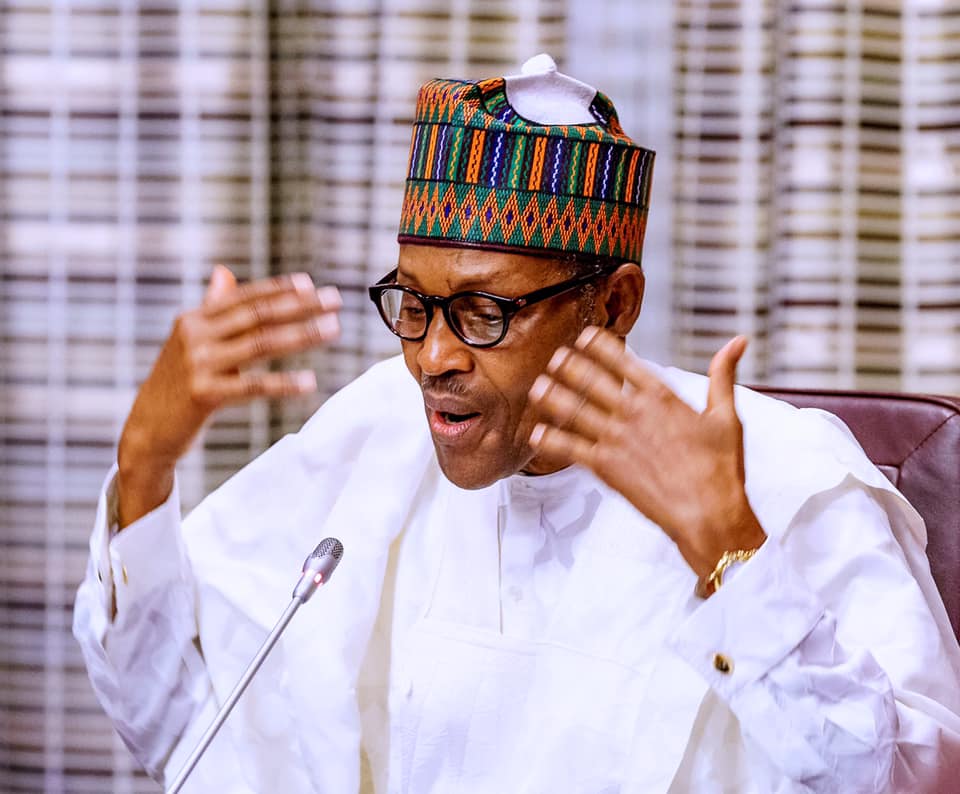The Presidency has faulted the leadership of the National Assembly over claims that poor and vulnerable Nigerians are required to apply online or through the internet to benefit from the Conditional Cash Transfer.
It also debunked claims that they were required to provide Bank Verification Number, BVN before they could access the funds which are designed for the poorest of the poor in the country.
In a statement signed by Maryam Uwais, the special adviser to the President on Social Investments on Thursday, April 9, 2020, the Presidency detailed how National Social Investment Programme works and how the poor and vulnerable are reached.
Explaining the process, Uwais said, “The National Cash Transfer Programme derives all the cash transfer beneficiaries from a National Social Register, NSR, comprising State Social Registers that are developed and hosted by the State Ministries of Panning of each State.
“The process for objective identification of poor and vulnerable households is as provided in the Financing Agreement, F.A, signed between Nigeria and the World Bank, for which purpose the World Bank IDA Credit and the recovered funds from the Abacha family are being utilized.
“The process involves a poverty mapping of the LGAs in each State, community mobilization, targeting and identification supported by trained enumerators at State and LGA levels, after which each of the households identified by the communities is visited and data collated, which information includes fields such as the size of household, age, gender, persons with disability (if any), assets, the vocation of the head of household, educational qualifications (if any), dwelling house conditions, etc.
“Finally, all the data collated is subjected to a proxy means testing formula to determine those who merit the grants and the accompanying training. Even though each State hosts its own information, all of the data is hosted at the National level as the National Social Register.
“As of March 31st, 2020, the NSR comprised 11,045,537 individuals from 2,644,495 households, collated from 35 States, 453 LGAs, 47,698 communities.
Each and every beneficiary has a generated unique number and can be tracked. She then explained that the services of payment companies were deployed to reach beneficiaries.
“Furthermore, payment service providers have been selected in an open procurement process to pay the cash beneficiaries at their locations, as many of them reside in communities where there is a dearth of banking infrastructure.
“Even though the majority of beneficiaries are not financially literate, the National Social Investment Office (NSIO, then under the Office of the Vice President) commenced the pilot exercise of payment of beneficiaries in 6 States through microfinance banks in September 2019, with a 93% success rate.
“The exercise was preparatory to full digitization, especially with the impending cashless policy in March 2020.
“It is also pertinent to mention that the National Economic Summit Group, (working with Accenture and the Busara Centre for Behavioral Sciences) formed the Policy Intervention Unit for the NSIO.
“Furthermore, in addition to the World Bank’s strict auditing responsibilities, the African Network of Environmental and Economic Justice has provided over 700 monitors across all the LGAs where the NSIP beneficiaries exist.
“The link to the Report is to be downloaded at: https://aneej.org/wp-content/uploads/2019/10/Mantra-Field-Report-final-compressed.pdf. Indeed, the ICPC, EFCC & the DSS were also invited to monitor the process to protect the beneficiaries, after they receive the benefits in the field.”
Not satisfied with the explanation, Uwais offered more insight into the workings. “It is only in respect of the Job Creation programme that applications are made online.
That particular programme was initiated for youth who consist of graduates and non-graduates, as with JAMB candidates who continue to apply for their own admission, online.
“Indeed, all the LGAs around the country currently have N-Power beneficiaries serving in sundry capacities.
The utilization of the BVN for N-Power beneficiary payment is also as a means of identity (since the NIN number can be generated from the BVN) and to facilitate the tracking of payments and further ensure accountability.
“The identities of the cash transfer beneficiaries are protected by law (the FOI Act), as the consent of recipients of social grants is a pre-requisite, before disclosure.
They can, however, be found and verified through the LGA community facilitators, CTFs, who have been trained to support them by weekly visits to the wards.
“The names, wards, LGAs, States and phone numbers of the CTFs can be found at http://n-sip.gov.ng/resource-data/, as the data collation continues to grow around the country,” she added.
Hattip to Vanguard







